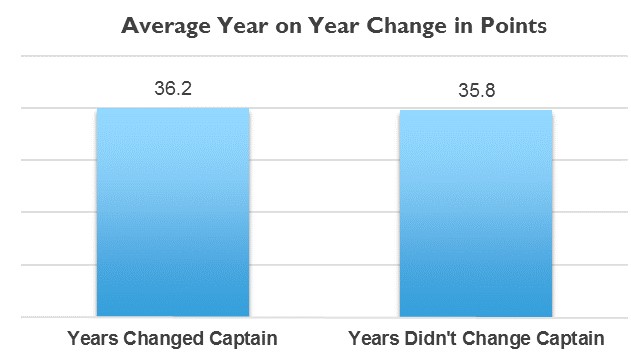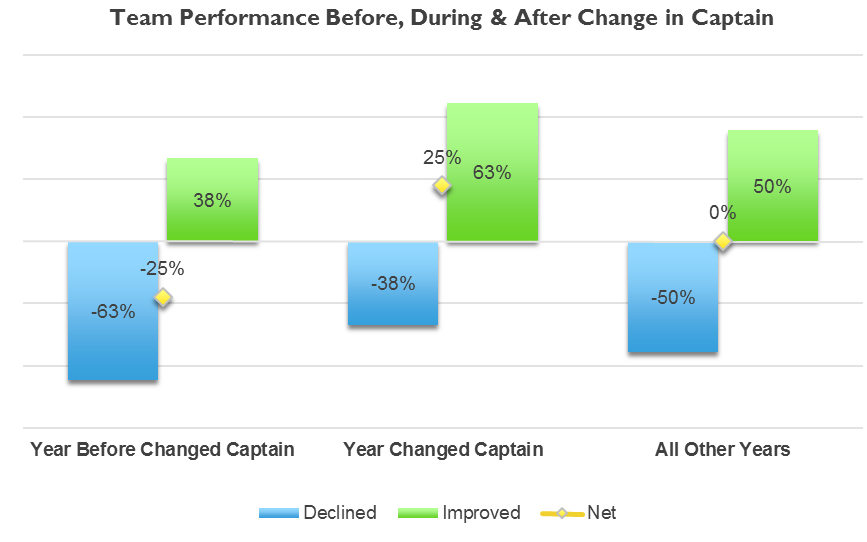We’ve just experienced the usual fuss that surrounds the appointment of a new England rugby captain, together with theories about what makes a good captain and anecdotes about how various different captains made their teams great. Is this all just jibber-jabber or is there any evidence to see if the team captain makes a difference to performance? The evidence tells me this, compared to other things. The captain hardly matters.
Even Where The Captain Has Lots of Power, He Barely Makes Any Difference
I looked at English county cricket results from 2006-15 to test the importance of the captain. There’s a fixed number of counties over 2 divisions so we’ve got the same sample of teams throughout, and there’s a decent number of changes of captain to test our theory. Cricket also seems to be a game where the captain should have a lot of influence (deciding whether to bat or bowl first, when to declare, field set up, bowler selection, etc) compared to other sports. So my theory is that cricket should show the captain’s influence at its strongest.
Performance of teams varies year on year, even when you don’t change the captain. So if the captain makes a difference, for better or worse, then you’d expect the performance to change more in the year that teams change their captains. Here’s a comparison of the change in points when teams changed captain, compared to the years they didn’t change the captain.

So changing the captain changes performance in a way that’s barely perceptible.
Don’t Be A Captain (or CEO) in a Bad Year
But what about the perception we have of our teams doing better after we’ve got rid of the old loser and brought in a fresh face? Is that intuition wrong? Well it is and it isn’t. Here’s an analysis of whether teams had a performance increase or decline the year before the new captain came in, the year he came in, and all subsequent years. The simple percentages are a coincidence, the sample in each group is 40.

Here’s what seems to be happening:
- When teams change their captains, it’s often when they’ve had a bad year
- The new captain comes in and the team improves to the level it was before the bad year
- After that the team carries on at the same level until another bad year and the cycle is repeated
What’s most likely going on here is something called reversion to the mean. Something worse than normal happens, so you make a change and things get better. We come away thinking our change has made things better, but all that’s happening is that things are reverting back to normal; we can tell this because things are about the same as before the bad thing happened. The exact same pattern happens in studies of CEOs being replaced.
How To Choose a Captain
So back to our question, does the captain matter? If his effect is indistinguishable from random fluctuation in a sport like cricket where the captain has such influence on tactics, then I find it hard to believe that the choice of captain really matters much at all most of the time.
What seems to me to be more important is that the team chooses its best players – there is outstanding evidence that the team with the best players wins. So choose your best players, and make one of your very best the captain. The conclusion of the debates I heard about the most essential quality of great captains is that they lead by example – sounds the same as having a great player and making them captain.




